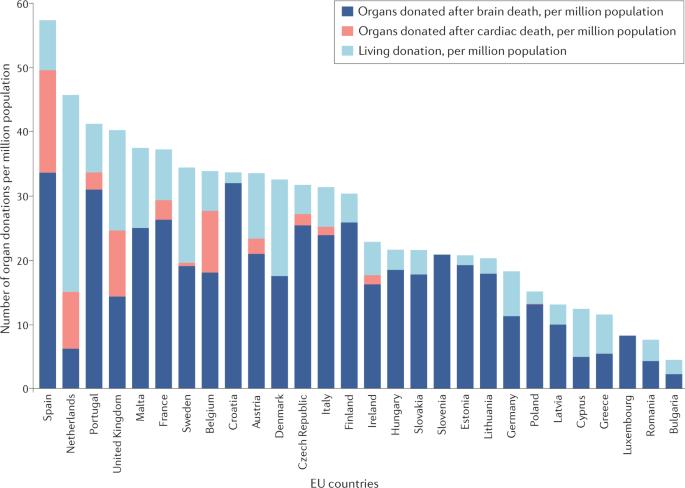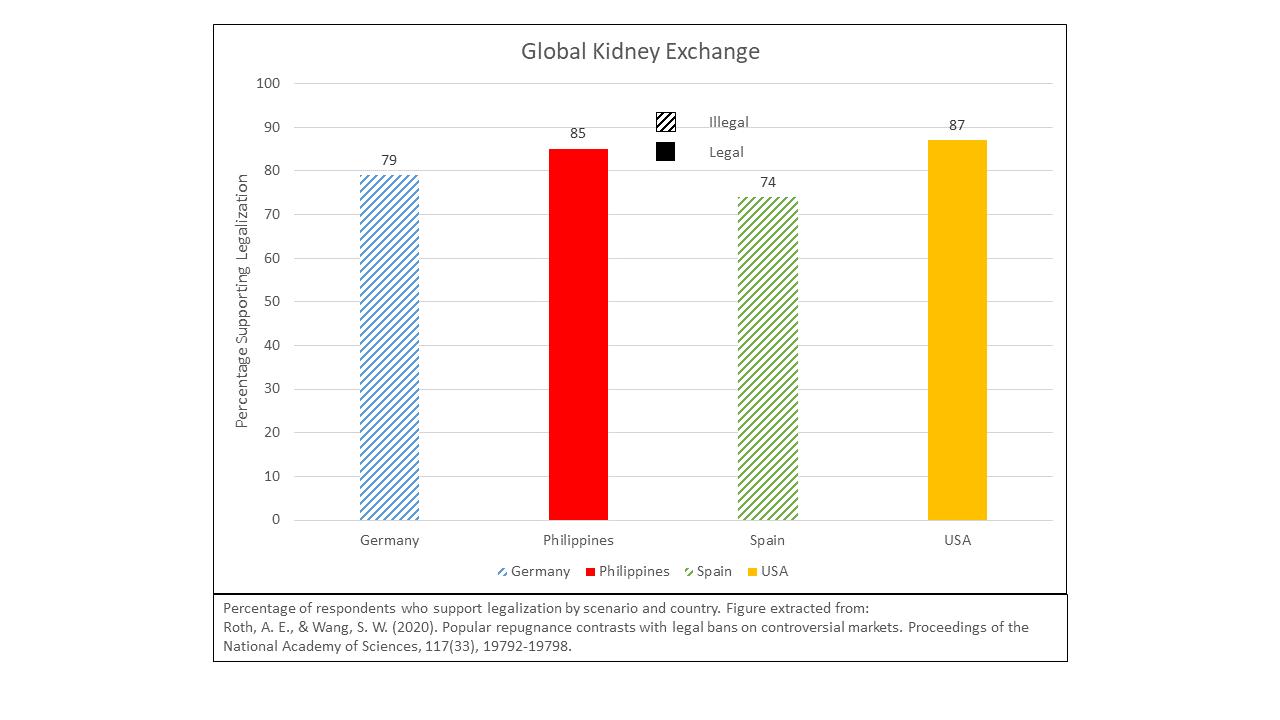Yesterday the German Federal Cabinet published the draft of a law that would allow kidney exchange in Germany. Below is the text of the press release from the Ministry of Health, via Google Translate. (Prof. Dr. Karl Lauterbach is the Federal Minister of Health.)
Lauterbach: Überkreuzspende gibt Nierenkranken Hoffnung Cross-donation gives hope to kidney patients
July 17, 2024
"In the future, kidney donations should also be possible between two different couples. This is the aim of the draft of a third law amending the Transplantation Act - amendment of the regulations on living organ donation, which was approved by the Federal Cabinet today.
This makes it possible for a donor's kidney to go not only to their partner, but also to a recipient from a second couple who in turn donates a kidney (living cross-donation). At the same time, the law ensures increased protection for donors, who should receive better information and medical and psychosocial support.
Dying on the waiting list must come to an end. In the long term, we therefore need the opt-out solution. In the short term, we can make more organ donations possible through cross-donation: those who donate themselves can be helped more quickly in their personal environment. Up to now, living donations have only been possible between partners. In the future, it should also be possible between couples who are not so close. This initially gives hope to many kidney patients.
Federal Minister of Health Prof. Karl Lauterbach
The main changes
Cross-living kidney donations are made possible
Donation and receipt of a kidney “crosswise” by another organ donation partner in medically incompatible organ donation couples.
In the case of a cross-donation, the two couples no longer have to know each other - but the close relationship between the incompatible partners remains mandatory.
Regulation of non-directed anonymous kidney donations.
The tasks of the transplant centers in the context of a cross-living kidney donation and a non-directed anonymous kidney donation are regulated. The transplant centers decide on the acceptance of incompatible organ donation pairs and non-directed anonymous kidney donations from donors and transmit the data required for the placement to a central office for the placement of kidneys in the context of the cross-living kidney donation. After the placement decision has been made, the transplant centers concerned organize the removal and transfer jointly.
Establishment of a national program for the arrangement and implementation of cross-living kidney donations. A body for the arrangement of kidneys within the framework of cross-living kidney donations will be established or commissioned. The arrangement procedure will be laid down by law.
Distribution of kidneys in the context of cross-living kidney donations exclusively according to medical criteria and while maintaining anonymity. The authorization of the German Medical Association to determine the state of medical science in guidelines is expanded to include the rules for accepting and distributing kidneys from incompatible organ donation pairs and from non-directed anonymous kidney donations in the context of cross-living kidney donations.
The previously applicable principle of subsidiarity in Section 8 Paragraph 1 Sentence 1 Number 3 TPG is repealed in order to also enable preemptive kidney transplants.
Previously: removal of organs from a living person only if no post-mortem organ was available.
Donor protection is further strengthened
Expansion of the regulations to clarify and specify donor suitability.
Introduction of compulsory psychosocial counseling and evaluation. The necessary knowledge and skills for the
Psychodiagnostic evaluation and psychotherapeutic treatment can only be carried out by medical or psychological specialists with specific training or further education in psychological, psychosomatic or psychiatric issues (so-called mental health professionals). The independence of the expert ensures that the consultation and evaluation is not influenced by the transplant medical managers in the transplant center, that there are no professional dependencies with these managers and that the expert is solely committed to the interests of the donor. The requirements for the qualifications of the independent expert will in future be set out in the guidelines of the German Medical Association.
Individual support for donors through the introduction of a living donation companion who accompanies and advises the donor throughout the entire donation process in the transplant center. The living donation companion must be a doctor, nurse or person experienced in psychological or psychotherapeutic issues and must be professionally experienced and independent of the specific transplant process. He or she may not be involved in the removal or transfer of the organs, nor be subject to instructions from a doctor who is involved in these measures.
Introduction of federal legal requirements for the activities of living donation commissions.
Granting of additional points
Living kidney donors who themselves require a kidney transplant later in life due to an illness should receive additional points when kidneys are arranged, the amount of which should be determined in the guidelines of the German Medical Association."
########
Axel Ockenfels writes:
" I
took a quick look at the draft
bill that was passed
by the federal cabinet in Germany today and that would allow kidney
exchange. There are many good aspects in the bill, such as the mandatory
participation of hospitals in a national exchange program and the possibility
of non-directed donations (which was more controversial), as we suggested to
the Ministry in a paper by Ashlagi, Cseh, Manlove, Ockenfels and Pettersson.
"I am
happy to see that the draft seems to agree that the details of matching should
be delegated to experts and not overly specified in the law, as suggested
by Tayfun
Sönmez, Utku Ünver and me in a comment on the previous
draft, as well as by others.
"One
consequence of the previous draft would have been that non-directed donations
would almost always have gone to patients on the waiting list and would not
have been included in the kidney exchange. We advised against this and are
happy to see that the draft bill document now states that "a
non-directed anonymous kidney donation is in principle initially made in favour
of a recipient of an incompatible organ donor pair" (p. 67, DeepL
translation), and that it also allows chains of kidney donations initiated by
non-directed donors (although I find the wording of the draft somewhat unclear
in this respect).
"We
also strongly recommended that compatible pairs be allowed to participate in
kidney exchanges, yet the bill would still make this impossible: "Participation
as a pair of compatible organ donors and organ recipients in a crossover living
kidney donation, on the other hand, is not envisaged, as a living organ
donation would be immunologically possible in these pairs. There is therefore
no need to enable cross-living kidney donation for these couples as well"
(p. 66, DeepL translation).
"This
is unfortunate because the inclusion of compatible pairs has many benefits and
can sometimes make everyone better off, including the patient in the compatible
pair, additional donor-patient pairs, and patients on the waiting list.
However, this may not be the last word, as there is still room for change in
the upcoming legislative process.
"The
document also comments on the possibility of cross-border exchanges: "Commissioning
the institution that already handles the procurement of post-mortem donated
organs [namely Eurotransplant] also opens up the option of establishing an
international programme - comparable to the exchange of post-mortem donated
organs - within the Eurotransplant Network" (p. 31, DeepL
translation)."
############
Here are all my posts on Germany and kidney exchange.






